Visiting a Poland Milk Bar
Words by Dalene Heck / Photography by Pete Heck
Milk bars are an institution in Poland, although you wouldn’t know it.
When we’ve asked for the nearest bar mleczny or told locals that we had previously visited a few across the country, they are usually taken aback at our question or statement.
But then their puzzlement in turn puzzles me, as while they may not consider visiting milk bars as a valued tourist experience, I believe that it is the one thing that every tourist should absolutely do.
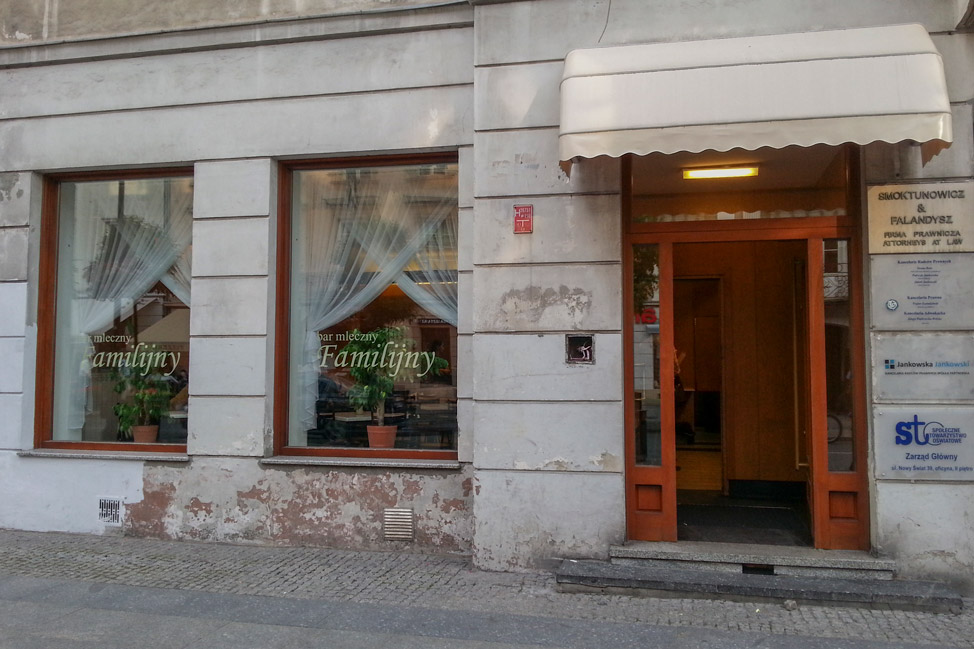
A traditional Polish milk bar facade is nondescript, the interiors are simple and void of any panache.
Poland Milk Bar Ordering Etiquette
Join the Line:
Upon entering a traditional Polish milk bar, find the queue and wait your turn.
Payment:
Pay at the cashier and receive a receipt to show the cook as you pick up your food.
Many milk bars may only accept cash, so it’s a good idea to have some on hand.
Cafeteria-Style:
There are no waiters at bar mlecznys. Simply take a look at the menu, and then make your order at the counter.
The menu boards are spread across a wall near the counter – those items that are available have a price beside them, but some do not.
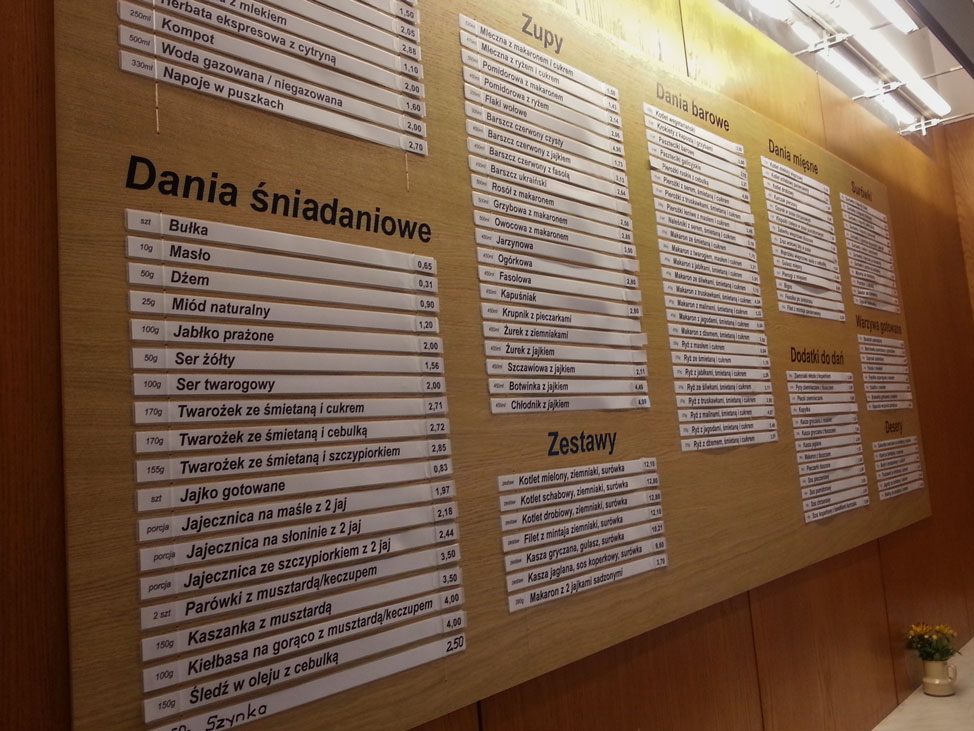
If you’re lucky, an English menu will be available at the till.
A lady will take your money and another, her head peering in the space of a small gap in the wall lined with a counter, will glance at the receipt and begin to fill it.
Sometimes orders are barked behind the scenes, as dinner plates are quickly filled.
Sharing Tables:
Don’t hesitate to share a table if it’s busy–it’s a common practice.
Eating in milk bars is a quiet affair and it feels awkward to consider engaging in any kind of gregarious conversation as we would in another setting – most patrons have their heads down and silently consume their food.
Finishing Your Meal:
Customers are expected to stack their own plates and take them to the counter before leaving.’
There is no loitering for after-dinner coffee or drinks, it is solely a place to eat and move on.
And a place to return to the next day, not only for the cheap, wholesome food but the austere atmosphere that feels like a complete throwback to a more moderate time. That is an experience onto itself.
The Food
Those creating the food are not chefs, but cooks.
This is traditional Polish food as good as any you’d find in a traditional Polish house. And while none of the dishes are particularly pretty to look at, they are all delicious.
Popular menu dishes include Cabbage Rolls, Potato Pancakes, Pierogi Ruskie with meat, cheese, and various fillings, Pork cutlet with mushrooms and potato, and tomato soup.
Menu Highlights
Pierogi: These stuffed dumplings are a must-try. Filled with various ingredients like potatoes, cheese, mushrooms, or meat, pierogi are served with toppings like sour cream and fried onions.
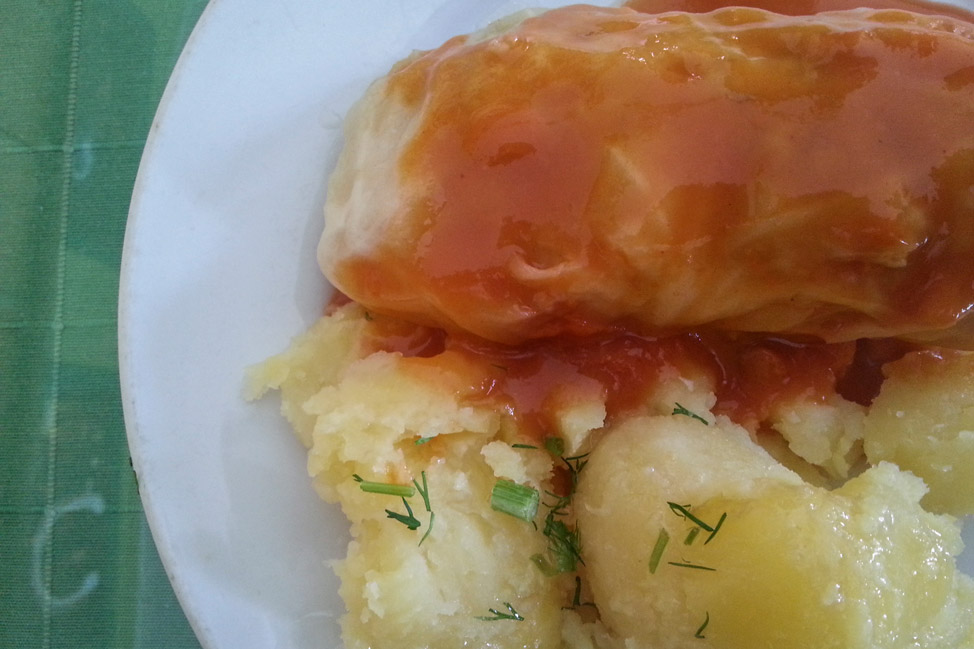
Placki ziemniaczane: Potato pancakes, crispy on the outside and soft on the inside, usually served with sour cream or applesauce.
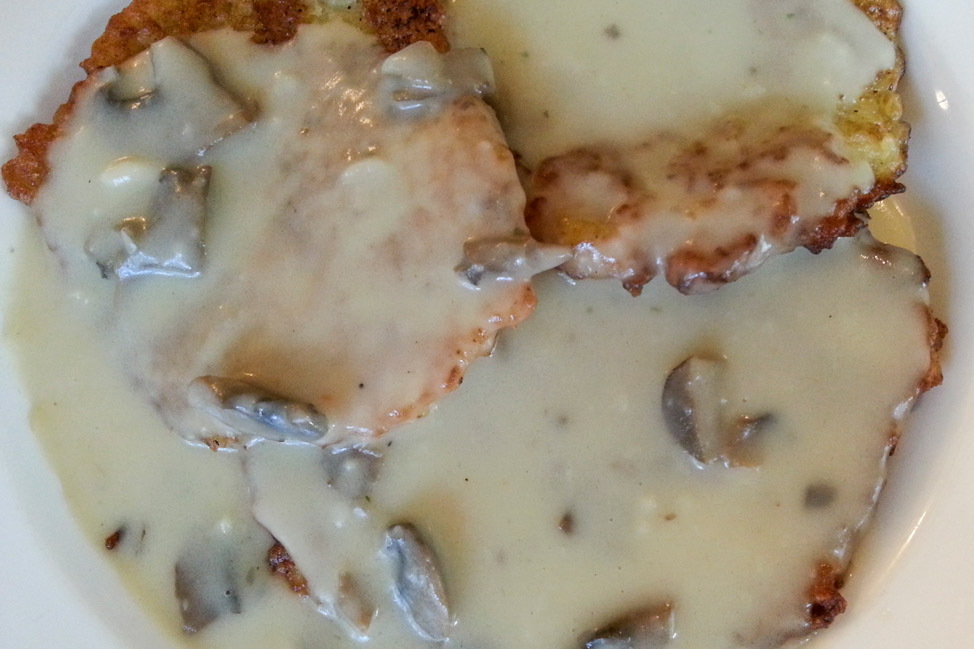
Bigos: Known as “hunter’s stew,” this dish combines sauerkraut, fresh cabbage, and different types of meat, creating a hearty and flavourful meal.
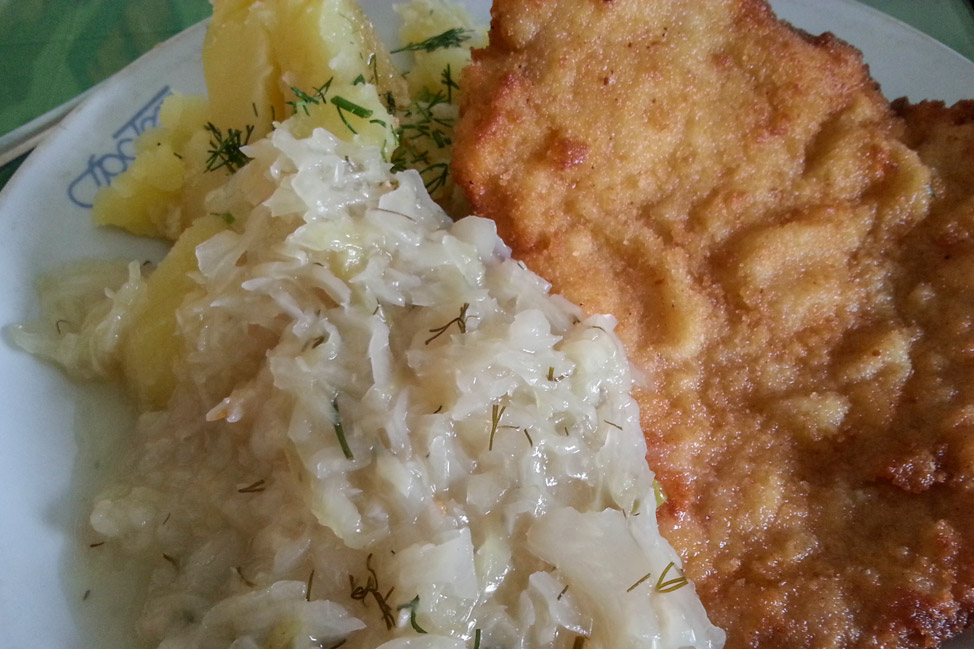
Żurek: A sour rye soup often served in a bread bowl, usually accompanied by sausage and hard-boiled eggs.
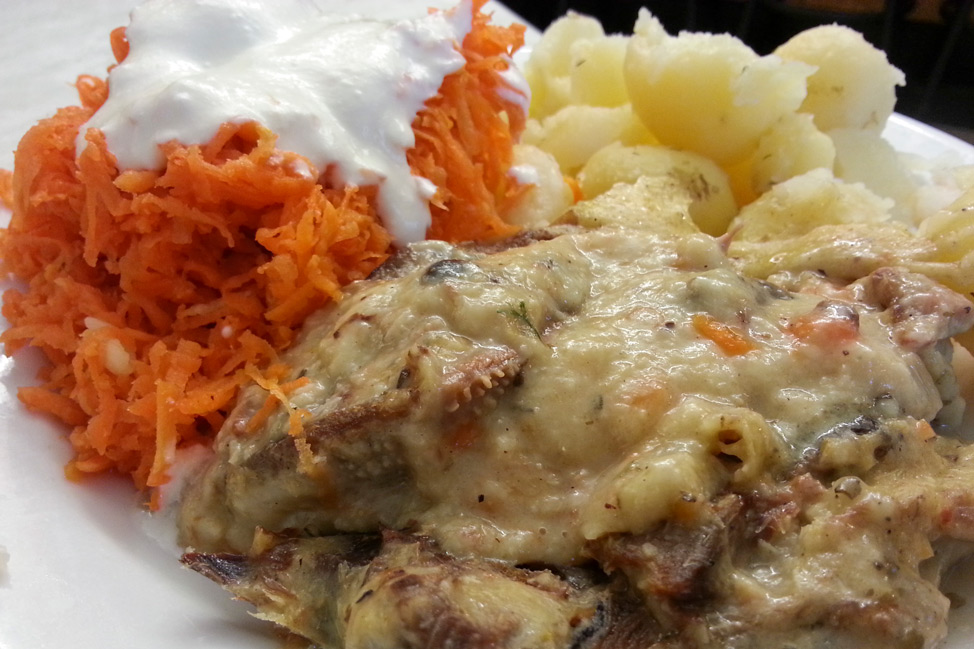
Kotlet schabowy: Similar to a breaded pork or chicken cutlet, this dish is reminiscent of a schnitzel.
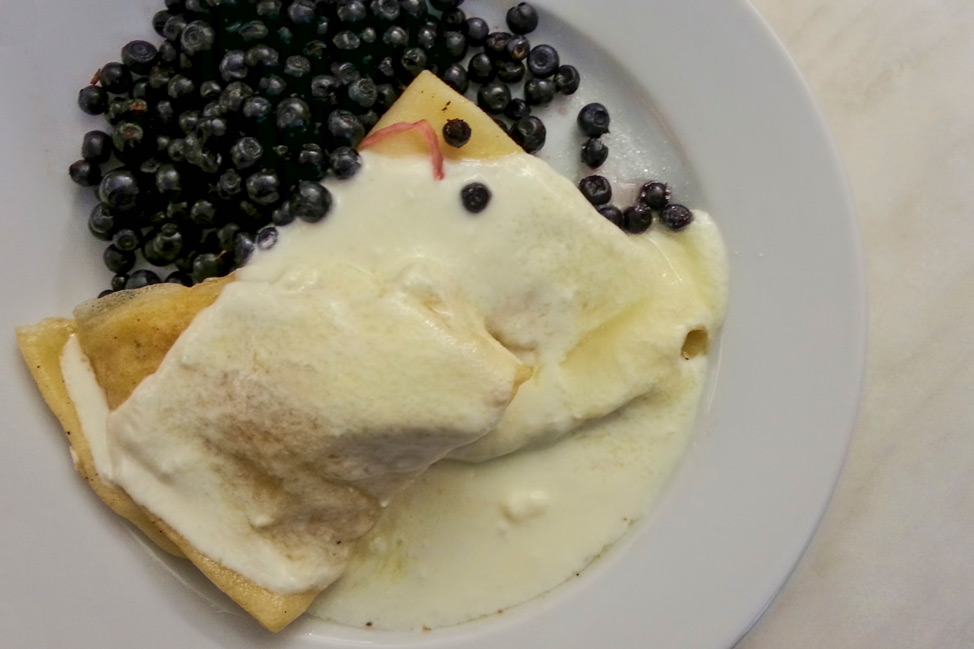
Kompot: A sweet fruit beverage, often homemade, served cold and offering a refreshing contrast to the savory dishes.
The History of The Polish Milk Bar
The bar mleczny, which translates directly as “milk bar”, gained popularity after World War II as a place to go for cheap but nourishing food. At that time, communism had taken over and the majority of the population was poor and milk bars became subsidized by the state.
The food is still incredibly inexpensive – the average meal costs approximately $4 and the portions are generous. These cheap eats have become popular among students, the elderly and working class, although the large cities only have a handful of milk bars left.
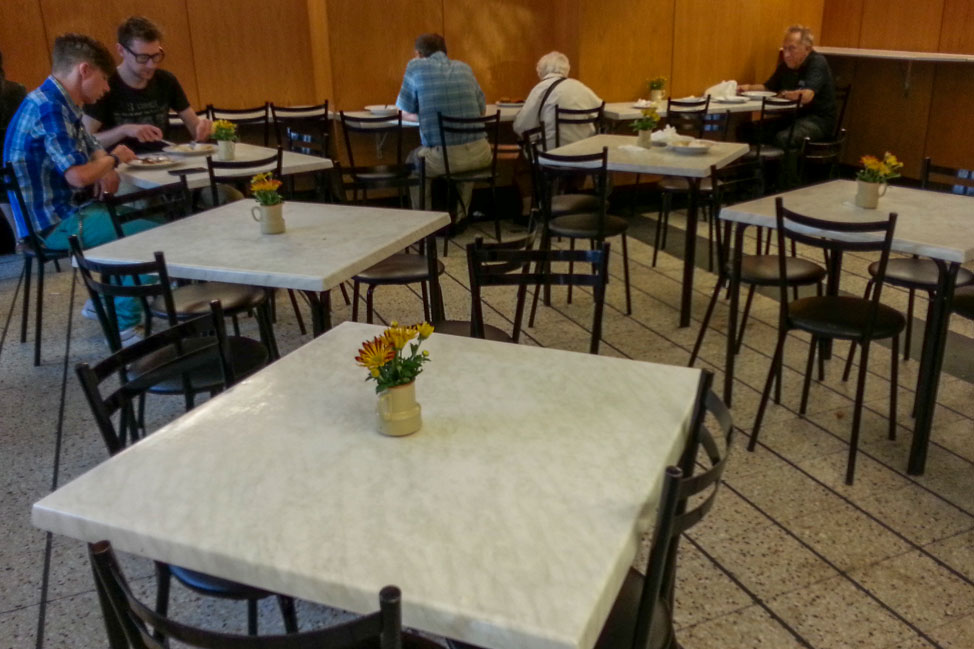
Polish Milk bars are more than just places to eat; they’re repositories of Polish history and heritage. Respect the authenticity and affordability they offer.
Where To Stay
High-end
According to a review of the luxury Hotel Bristol in central Warsaw, the Sunday Brunch is a must! The front-facing rooms offer a lovely view, and the rooms are very spacious. It’s a “truly extraordinary 5-star.”
Check reviews | Book this hotel
Mid-range
The Royal Route Residence apartments offer a different option to hotel stays in Warsaw. The apartments are centrally located and come with a kitchen and living space.
Check reviews | Book this hotel
Budget
The Ibis Budget Warszawa Centrum is located a bit outside the city center, but is near public transportation options. The rooms are comfortable and clean, and breakfast is offered!

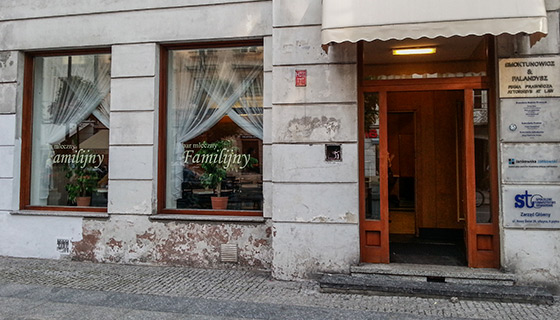
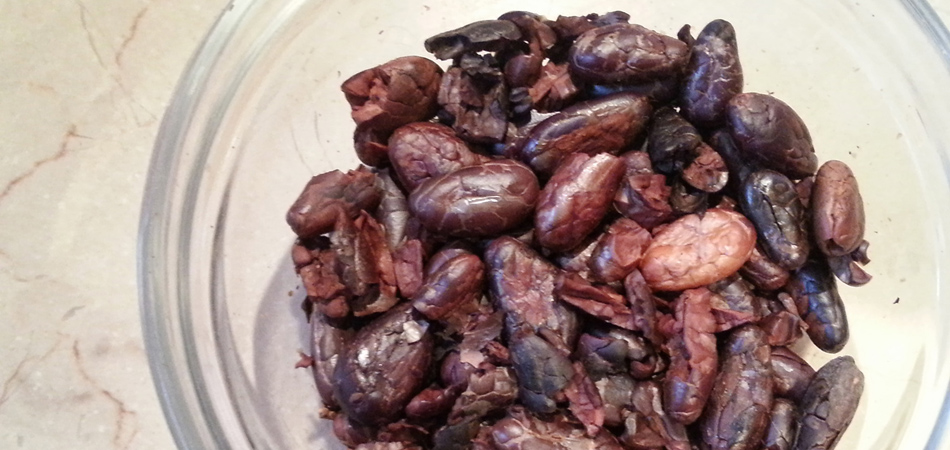


Love these! Visited one in Gdansk the other day and went to one in Warsaw with some friends who live there and go there for lunch!
I wonder if we went to the same on in Gdansk?! So delicious!
I would love the cabbage balls with the sauce!! I would love the veggie options available I guess 🙂
There are plenty of veggie options – you would eat well in Poland, Arti!
I rarely comment on the travel blogs I read (I love yours!) since I’m not traveling all over the world now, but I just had to say how much I loved this post. I went to a Milk Bar in Krakow after asking a local for a suggestion for lunch with friends. We spent forever looking for it, but it was one of the best meals there. Like eating in the kitchen of a Polish family. I also got gotabki because I had tasted it once before at home, and was very happy.
I’m glad you persevered and found it! I think our best meals have come from there too.
the lady at the counter in Rusałka was all smiling and excited she could suggest you all kinds of Polish food to try 😉 (which was surprising even for me!) I so would love to make you eat even more of these goodies in milk bars across Warsaw, we could have made a “milk bars tour”, that would be pretty awesome 😉 btw, your fave pub, with umbrellas on Francuska street – they have the best ice cream ever, I just tried them the other day and they’re heaven! you should come back to get some too! 😉
Yes, that one lady was so enthusiastic compared to the others! (Btw, I think you SHOULD start a milk bars tour!)
A new item on my bucket list (seriously). Thanks for sharing!
COOL! Glad to take responsibility for that. 🙂
Ah I didn’t have the time to visit one of these while I was in Warsaw, but I heard about them. Thanks for the fantastic explanation – quite interesting that the concept still exists today.
It’s a concept that is dying, unfortunately, but a bit of nostalgia is boosting it back up. I hope it survives!
The naleśniki do look especially good! I never went to one of these in Poland, but they have something similar in Czech Republic. There’s a good one in Prague I’ve been to a few times (can’t remember the name), right in the touristy part of town, but full of locals. These are the kind of eateries I crave as a long term traveller: going to fancy or touristy restaurants all the time really becomes tiresome (and of course expensive)!
Exactly Sam! I can only eat so many different kinds of pizza. 🙂 We’re so happy to find these kinds of things along the way as well.
The food looks amazing! I’d be ordering one of each!
Without a doubt, this is some of the best looking Polish food I’ve ever seen! I’d definitely be curious to visit Poland, but to be honest, all of the food pictures I had seen coming out of that country had been a real turnoff… your post has given me hope that the food can look better than I expected and that it likely tastes even better!
And we haven’t even started talking about the pierogies yet! The food is so fresh and delicious, I don’t think you’d be disappointed.
I literally just woke up and now I’m hungry! I spent a night at the Warsaw airport, which of course doesn’t really count. Looking forward to making it out of the airport next time!
Yum!! I actually really like Polish food thanks to my grandma, but I’ve never been over there. I would definitely try these milk bars though! Interesting concept!
Milk Bars sound like a great find, but I can’t help thinking of the novel and movie Clockwork Orange in which milk bars were a bit more sinister.
So gooood! Just honest, homecooked food – what more do you need? 🙂 Happy to hear you enjoyed!
This post has made me incredibly hungry! Looks so tasty. 🙂
$4 for those portions… in Europe?! Incredible.
Is this the one in Warsaw? I loved eating there! ;P
Yum yum yum yum!! Nom nom nom! Yum! (I’ve lost all eloquence in the face of this. You guys make me miss Poland more with every post!)
Ooh this looks great, would love to try out one of these famous milk bars when I’m in Warsaw soon – is there any particular one that’s a favourite & what vegetarian options would you recommend?
Interesting and unexpected post with a historical twist! The milk bar comes to life when you consider their value post war and the fact that they are now slowly disappearing.
Food tourism is always a do 🙂
Sounds good! I’m not sure I could handle all the cabbage, but some of the other food looks delicious.
Now I am even more excited to be going to Poland soon– will likely have the majority of my meals in these places, since it’s always the last thing you order that ends up being the best!
Definitely going to be trying milk bars when I go to Poland next week. The blueberry crepes look yummy. Did you see many vegetarian options on the menus?
Yes, there were plenty! We went with our vegetarian friend who had no trouble at all finding things to eat. 🙂
That’s a relief, I’m so glad! 🙂 It makes travelling so much easier.
I actually went to this very place during my vacation. I met a Polish girl there and she said they had the best tomato soup ever, and she wasn’t lying! It was absolutely delicious. It was so cozy and perfect for a cold winter day, and I was amazed by the number of dishes available. One of the best meals of my life. 🙂
Ah, the bar mleczny! That phrase brings so many memories!
One more thing that you didn’t mention that most of them have or at least used to have were the milkshakes. I spent a lot of my allowance as a teen on milkshakes at the “milk bars.”
Great post! I’m pinning it to my “Poland” board.
Great story! Unfortunately I missed this while I was in Poland but I’m putting it on my list for the next time 🙂
Great post! I ended up following a Polish person I met in Belgrade back to Krakow and Warsaw and we stopped into a few of these during my week there – so glad we did. I still dream of the zurek soup we had. So cheap and so delicious – just like the pijalnia bars at night!